Conversation with Insomnia Taxxi (Iryna Novikova)
and Construction Festival (Katya Rusetska & Mila Kostianá)
Ingeborg Zackariassen, June 2024
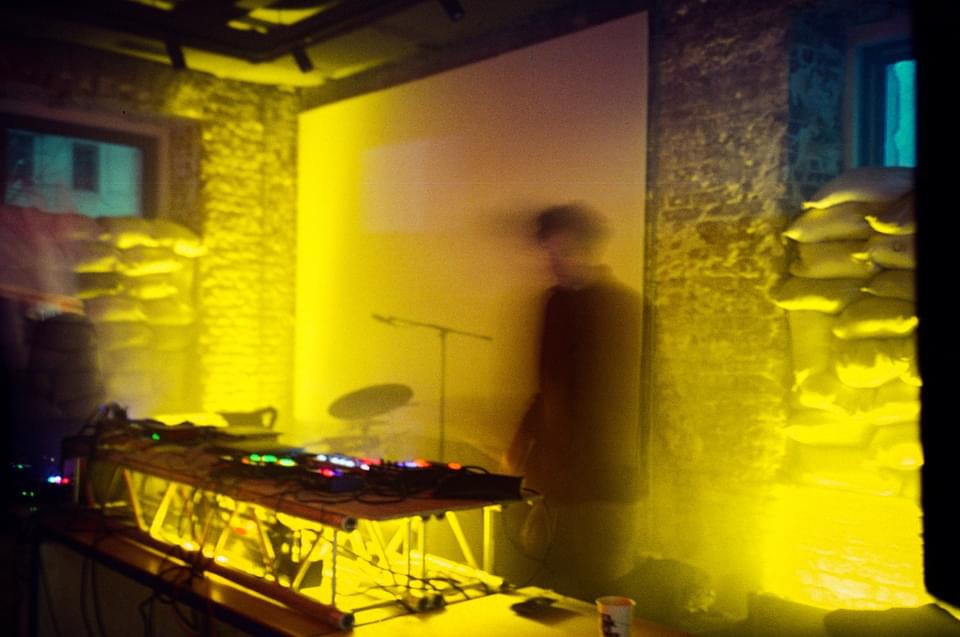
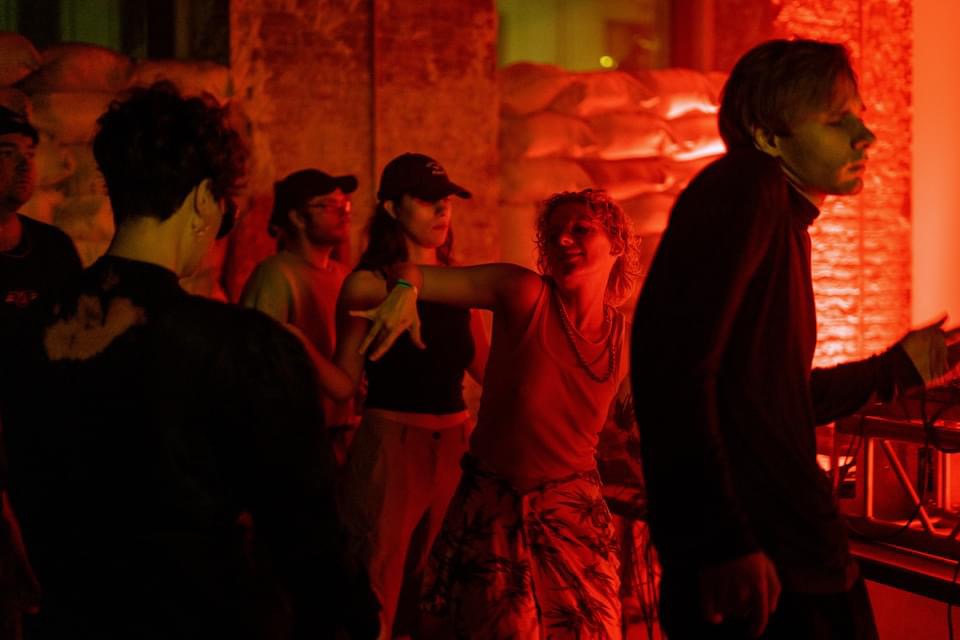
Construction Festival VIII, 2023. Photos by Yunona Prud
In connection with the Construction Festival in Dnipro, Ukraine, Iryna Novikova, Katya Rusetska and Mila Kostianá have a residency at 3:e Våningen, Gothenburg. The three women are active representatives for the independent, experimental Ukranian culture scene, both in their home country and internationally.
Iryna Novikova, whose stage name is insomnia Taxxi, is an independent musician and composer, while Katya Rusetska and Mila Kostianá both work for the Construction Festival, respectively as program curator and graphic designer. Today, they speak about honoring their friends; those who are fighting and those who have died in the war. Despite the catastrophic situation in their home country, they are finding ways to build a better future for present and coming generations of artists.
We have decided to meet in the café Eli´s Corner at Stigbergstorget, Gothenburg. This is a place where many artists meet for conversations, and the busy street outside the large windows is contrasted with a calm atmosphere inside. I have been daydreaming for a moment, and soon realise that two women are hugging each other intensely by the entrance. It turns out to be Iryna and Katya, who haven’t seen each other for 7 years. With them they have Mila, who recently started working with the Construction Festival. The trio are speaking in Ukranian and smiling through tears. They realise I have arrived, and immediately swap to English, telling me that they would like to dedicate the event in 3:e Våningen to their friends who are fighting and to those who have died. Their friend Arthur Snitkus, with whom Iryna has worked closely for years, died two days ago. Iryna is devastated.
She tells me about their performative duo, in which the pair looked eerily similar, to the point of people confusing them.
– For Arthur, our duo was more about gender, Iryna says. – For me, it was about something cosmic. In 2016-17 there were not so many projects which were queer or androgynous-friendly, so the Kyiv LGBT+ community often began to invite our band to support these events. I think Arthur was one of the revolutionaries in this field. I also think he was an old soul. Sometimes you meet young people who are very deep, and he was this kind of person. Iryna says that it was not always easy to work together, but she’s incredibly very thankful for Arthur’s input, as he contrasted her perfectionism. He had the attitude of always being ready to perform, as he loved being on stage, she says.
– If it wasn’t for Arthur, I would still continue to work on improving the music for our project at home and studio, how it was before, when I didn’t release a lot of tracks just because I felt it was never good enough. He really woke me up, Iryna says thoughtfully.
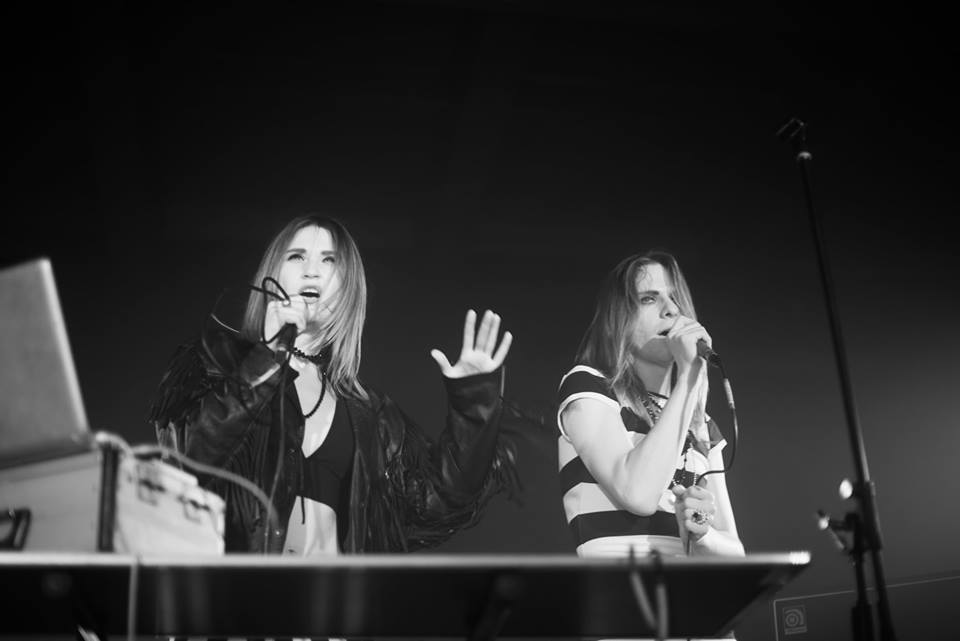
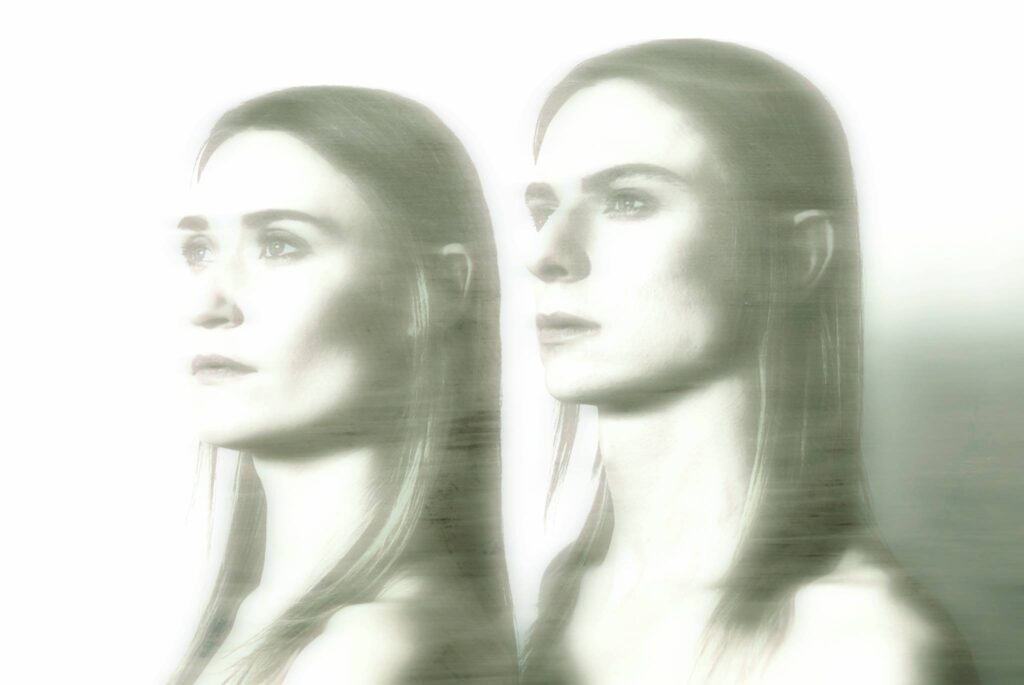
Insomnia Taxxi and Arthur Snitkus. Photos by Natalka Dychenko, Igor Makedon
– We looked so similar, but in reality, we were so different… Iryna sighs. – But it was a beautiful time.
I can’t imagine how difficult it must be for Iryna to talk about her close friend and collaborator in past tense.
– He was so talented, she says. – And it’s not right that he is gone so soon. He should have been able to realise his potential.
Katya continues: –We are losing so many amazing people who are representatives of underground culture. On the same day as Arthur died we got information about an activist who was doing a lot of projects and you just have this constant feeling that there are so many activists and artists [getting killed] and some of them are so young… and you know, you get this feeling that this person had so much time and so many things to do and they didn’t get to do them because of the war.
They speak of other friends, like Yurii, who’s behind the music project Mokri Dereva, a talented artist who has been in the army since the beginning of the invasion. – These people are the ones who should build the country. They should work in the highest positions, they should be in the ministry of communication, of cultural issues. They should be the grassroots… We somehow want to explain to the people outside of Ukraine that we are losing the battle so far and that there are so many people who are usually working in the bar, running some record shop, people who are doing amazing activist work… most of the people we know are now in the army and have had to put their artistic practice on hold. We all want to enjoy our lives but we cannot do it.
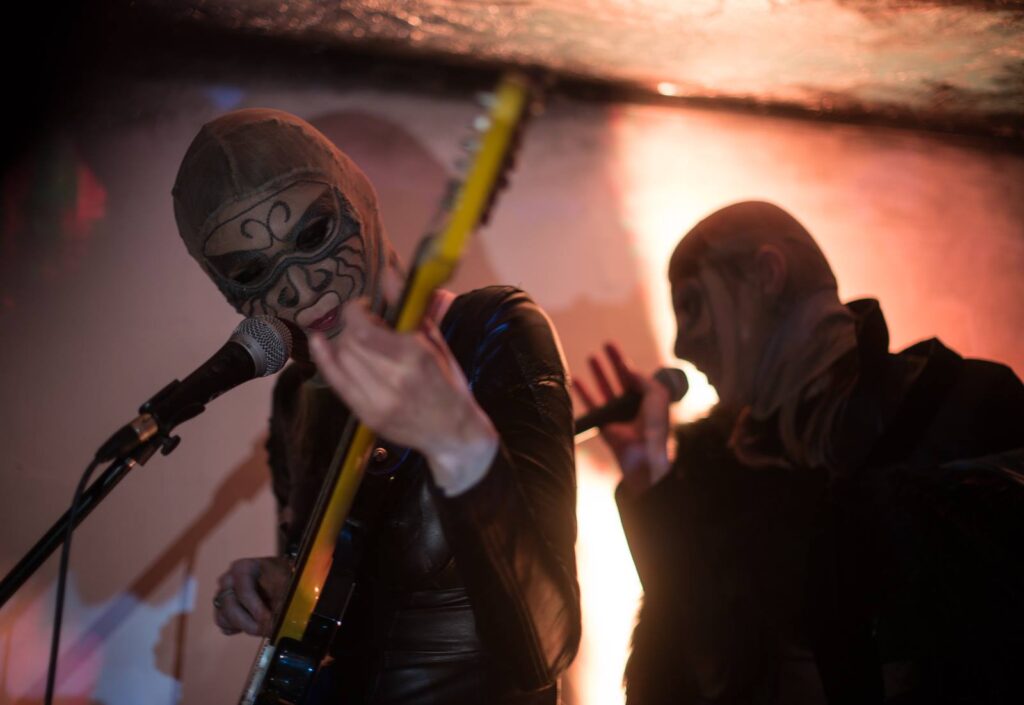
Insomnia Taxxi and Arthur Snitkus. Photo: Natalka Dychenko
Mila agrees. – It wasn’t the choice of Ukranians to enter this war, she says. – I don’t really know anyone who enjoy the military. To be ready to protect is one question but I don’t think anybody is ready to lose friends, or not be with family or see your kids grow up, or lose your health, or to die. Sometimes I think people are uncomfortable because they think “oh, they will just talk about the war again… But this is also a big part of contemporary culture.
Iryna continues: – Contemporary culture means that music is political, that everything is political. I find it really naïve when some people still say that culture should be apolitical. And most of the people with whom we collaborate and work support and understand us. That’s how we can have this residency here, and are able to continue collaborations and international projects.
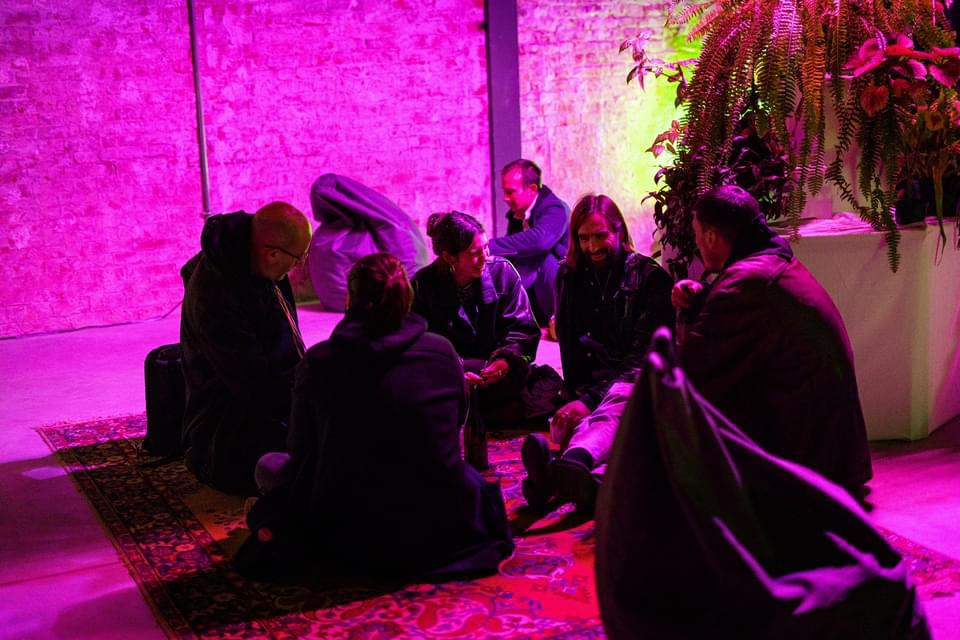
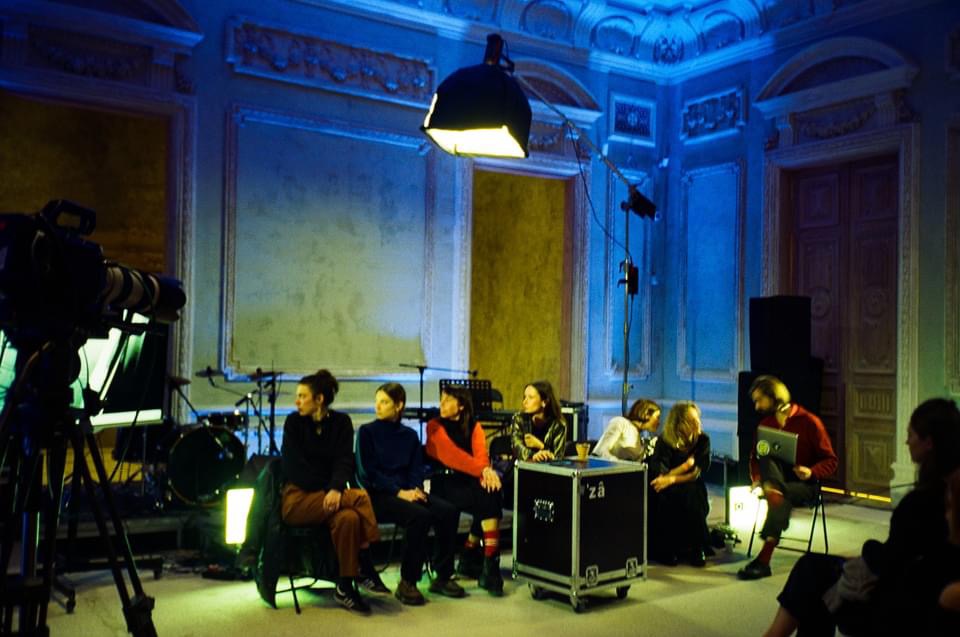
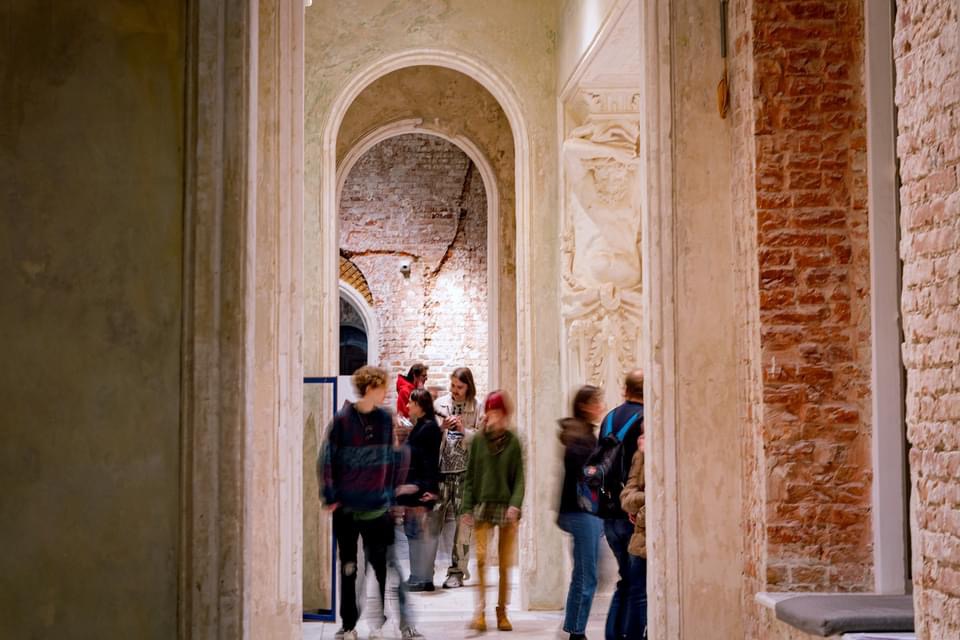
Construction Festival VIII, 2023. Photos by Yunona Prud
The Construction Festival is situated in Dnipro, Ukraine. Katya Rusetska is co-initiator and program curator of the festival. She speaks about how there has been a lot of conversations during the residency about how artists continue to do what they do during war, and how the war situation becomes the context of their work and their lives. – We started to work on the idea of the festival right before the revolution, and the initial idea was to have a “normal” contemporary, experimental music festival. Katya takes a deep breath, and continues: –Dnipro is one of the biggest cities in Ukraine, in the eastern central part, and on the cultural map, there were moments of something amazing appearing there, but a lot of people were moving to the capital, or to eastern or western Europe. She tells me that at some point a choice had to be made, regarding whether or not to stay in Dnipro and giving the city one more chance while doing something that was interesting to them,; trying to make a community that was lacking there, or do as so many others were doing, namely leaving Dnipro to start up somewhere else. The question was answered by the reality of the situation, as more and more people were being displaced and coming to Dnipro, and they started fundraising and organizing and helping in various ways.
The cultural center Katya is a part of running is called DCCC, Dnipro Center for Contemporary Culture. Katya laughs a bit about the dryness of the name, and explains that they needed an ambitious name to get support from the municipality. – A lot of things changed in the time before the full-scale invasion, there were a lot of interesting dynamics, changes, more and more international collaborations, obviously some funds from EU and the U.S., which gave us more opportunities, but also people from underground culture and smaller labels were creating interesting things. And during this time [Gothenburg based artists] David Sabel and Kajsa Magnarsson were performing in Dnipro at the Construction Festival. Some years before that I met Christian Pallin from Koloni, and that’s how it started. He and other European organisers became aware of the experimental and non-commercial scene that we were running. And from time to time we had some Swedish artists at our festival… So this exchange and relationship with Gothenburg based artists started already in 2017.
Mila tells me that she only joined the Construction team a year ago. – So it’s kind of fresh, she says. – It’s really interesting what [Katya] said about the commercial or experimental point of view. Mila explains that especially for young artists starting out during this time of war and confusion, it’s really important to have places like DCCC and festivals like Construction, which prove that there is still a community to be involved in, an artistic context in which one’s work is needed.
Last November they did an edition of the Construction Festival which they called Ukrainian Hardcore: Learning from the Grassroots. Katya explains that they use the word Hardcore as the symbol of a base made from leftovers of construction sites, rebuilding something from trash and then use it as a very stable base…
– There’s a lot of things falling apart around us, but let’s think about these things like a base that we can use, because there’s so many initiatives now which manage to self-organize, which manage to create new tools and and ideas for how to survive and how to help other people. When you are in a state of war you always have this feeling that whatever you do it’s never enough and you can be volunteering 24/7 but you will still talk about decolonization. You can earn money and send everything but you will feel that you still need to do more. A lot of artists incorporate this volunteering or activism practice into their own work.
Katya points out a positive change in the solidarity between cities in Ukraine and an interest in rediscovering what is happening in the art scene overall. People support each other. The is no municipal or state funding anymore, so they rely on EU and U.S. funding. Since the festival has existed for 10 years of work already, there is a large network to fall back on. But there’s a real feeling of living day by day. Katya says the Construction Festival would love to support artists more and always have a funding to give them a fee. That is one of their goals. – We are offering fees to the artists right now as well, but we are working on having a stable base/funding to do so without any worries.
Construction Festival currently offer 90 % of their events for free, and when they do sell tickets to a festival they donate all the money to their friends in the army.
Iryna says that due to Ukranian culture being under attack, Construction Festival is extra important now. – Museums and churches are being bombed and she says there seems to be a plan to wipe away memories and make people forget their roots. Iryna nods respectfully to Katya and Mila. – Construction Festival generates new Ukrainian artists, and that’s super strong. Thank you.
Katya says that although it’s been very stressful to organise the festival during war time, there’s been great moments with people coming together, like the community kitchen, which didn’t just include cooking together but also talk about different political aspects, like minorities and decolonization.
When I ask where the three are living at the moment, Iryna tells me that she is based here in Gothenburg, Sweden, as a refugee with a permanent residency permit.
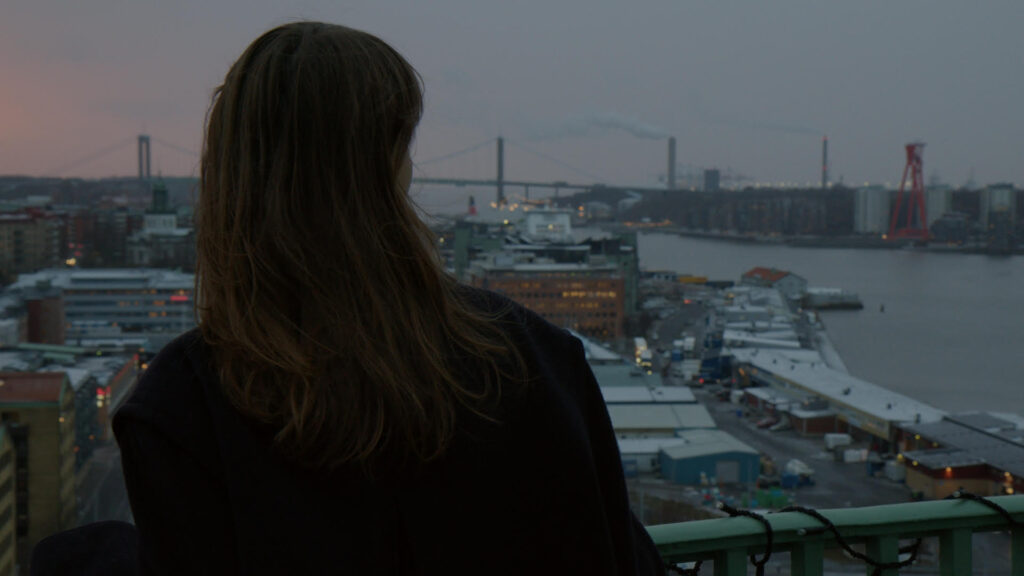
Iryna Novikova. Photo: Niklas Sjösvärd
Iryna says that she did not believe in the possibility of a full-scale invasion, but after waking up to the rocket attacks on Kyiv by the Russian army, she decided to go outside the city to think about how to proceed, and headed to the west of Ukraine, where on the border with Poland she met journalists from the French publication Le Figaro and helped them in creating a reportage in Poland and then in Ukraine, where she received an offer from the Göteborgs Stadsteater to play a performance at a charity event in support of Ukraine. – My friends and colleagues David [Sabel] and Kaisa [Magnarsson] asked me: “Can you please stay here? You know, just to rest a little…” At that time, I was busy taking my parents out of the occupied territory. We tried four times and it was a nightmare, but in the end it worked and they are safe.
In the midst of all this, I started getting more performance requests, so I’m gradually getting back to music. – This way I’m able to support Ukraine from here, which is great, but I never feel calm about I’m here and safe, so I always have to do something more.
In march this year Iryna made the music for the theatre play Bad Roads by Ukrainian director Tamara Trunova, which got raving reviews from Swedish critics.
Katya and Mila have found it important to dedicate their work to Ukrainian cultural institutions. – There are things to work on and things to explore, and it just made sense to go back, and I’m actually super happy about that decision, Mila says.
The two of them are currently living in Kyiv. Katya is working with the cultural program and curating visual and discussion programs, as well as the Construction festival. Mila is the graphic designer, but also co-organizing and co-curating their residency in Gothenburg.
Towards the end of our conversation, the three speak about how much progress had happened in Ukraine the last years before war, regarding human rights and fighting homophobia. In parallel with the military front, there are a numerous societal changes and conversations happening.
– Even now, and perhaps especially now, people are really paying attention to things, like what kind of new laws we should have. And in the cultural field there is a reanimation of the system. Right now LGBTQ+ couples have no rights to even see each other in the hospital as the next of kin, even when something really bad happens, because they are not allowed to get married. This is being discussed a lot, not just by representatives of LGBTQ+, but also allies, and there are already some movements [towards equality], and if some of this happens in Ukraine, that will be a really big sign and a step towards human rightse